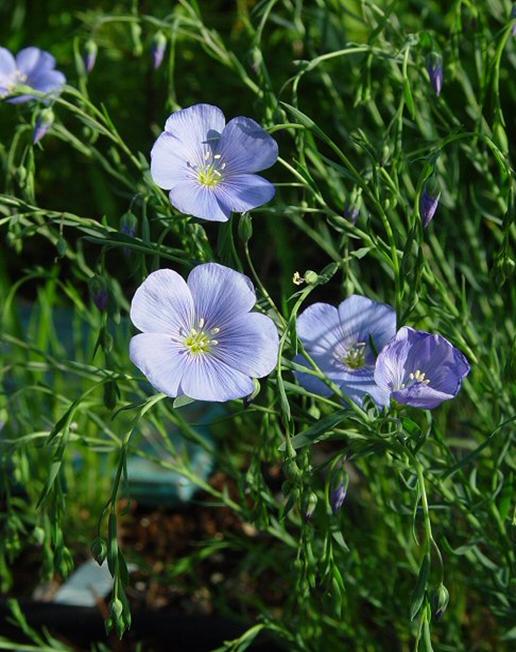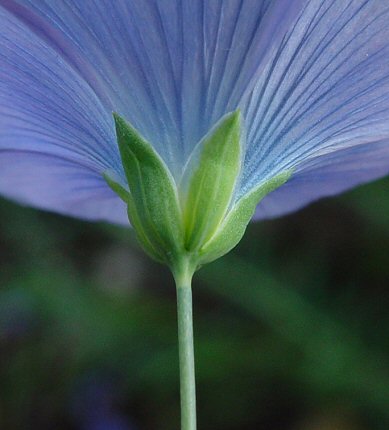ATASI - Linum usitaissimum
|
ATASI
Family Linaceae Latin name : Linum Gk. - linon flax (for weaving, oil for painting); usitaitissimum = common customary. English name: Flax
Scientific classification: Flax plants make up the family Linaceae. The species grown extensively for its fiber and seed is classified as Linum usitatissimum.
Sanskrit names: Atasi, Pichchita, Devi, Medagandha, Madothata, Uma, Hshuma. Hemavati, Rudraneela, Masruna, Suvalkala.
Leaves —long, narrow. Flowers — blue. Fruits — circular in shape with shallow seeds. Depending on the colour of seeds it is subdivided into 4 types, (1) white (2) yellow (3) red and (4) black.
Chemical composition: Seeds have 37 to 44% oil. White seeds have more oil. Fresh oil is more viscous but in fresh air it gets solidified.
Properties
Rasa madhur, tikta: Vipaka katu, Veerya ushna
Dosha : vatashamak, kapahpittavardha
External uses: The poultice of the flour of atasi is used to assimilate inflammation. This external application of atasi is used in deeper inflammation also. The external application of its oil i.e. abhyanga is vatanashak, A mixture of lime water and oil of atasi is very useful in burns.
Internal uses Digestive system : Fried atasi seeds are astringent and reduce intestinal motility. Oil is a purgative. Flowers are cardio tonic.
Urinary system Hot infusion is useful in cystitis
Srotogamitva:
Organs Eyes — oil not useful for eyes, intestines.
|
|
|
|
|



